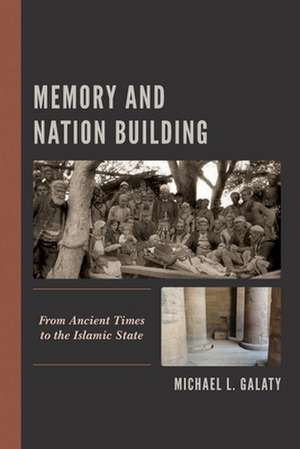MEMORY AND NATION BUILDING
Autor Michael L. Galatyen Limba Engleză Paperback – 5 mai 2021
Preț: 314.65 lei
Nou
Puncte Express: 472
Preț estimativ în valută:
60.21€ • 62.99$ • 50.02£
60.21€ • 62.99$ • 50.02£
Carte tipărită la comandă
Livrare economică 03-17 aprilie
Preluare comenzi: 021 569.72.76
Specificații
ISBN-13: 9781538158388
ISBN-10: 1538158388
Pagini: 224
Dimensiuni: 160 x 236 x 21 mm
Greutate: 0.34 kg
Editura: Rowman & Littlefield
ISBN-10: 1538158388
Pagini: 224
Dimensiuni: 160 x 236 x 21 mm
Greutate: 0.34 kg
Editura: Rowman & Littlefield
Descriere
This book is about how human societies form collective, i.e. shared, memories, with implications for how nations, ancient and modern, are built. Understanding how nations manipulate the collective memory making process is key to explaining the behaviors of various state and non-state actors, such as the Islamic State.
